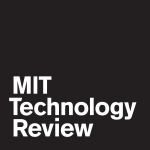June 28, 2022
Co-Director Named Chair of Data Privacy Panel at the World Bank
World Bank

TPL Co-Director Ryan Calo was appointed by the World Bank Group President as Chair of the newly-formed External Expert Reviewer (EER) panel. The three-member panel, composed of experts from across the globe, acts as an independent second-tier review body for complaints regarding violations of the World Bank Privacy Policy with respect to personal data. Professor […]
MoreJune 27, 2022
Co-Director on Privacy and Markets
Slate

A recent article in Slate written by Danielle Citron, whom the Lab will host as part of the Distinguished Lecture series later this year, advocates for the need to strengthen privacy protections for intimate and reproductive data in light of the Supreme Court’s decision overruling Roe v. Wade. In the article, Citron extends Co-Director Ryan […]
MoreJune 24, 2022
Co-Director Honored by Students with ACM Teaching Award
Allen School News

At the Allen School’s first in-person graduation ceremony since 2019, TPL Co-Director and Professor of Computer Science Yoshi Kohno was honored with the ACM Teaching Award by the University of Washington Student Chapter of the Association for Computing Machinery (UW ACM). The award highlighting faculty excellence in teaching was presented by Lucy Jiang, president of […]
MoreJune 14, 2022
Co-Director Appointed Head of Technology and Equity Research at ID.me
Yahoo!

TPL Co-Director Yoshi Kohno was recently appointed Head of Technology and Equity Research at ID.me, a secure identity verification service with over 90 million users. Previously, ID.me also established a Privacy Bill of Rights and committed to their “No Identity Left Behind” initiative, which seeks to include people who traditionally have difficulty verifying their digital […]
MoreMay 4, 2022
Co-Director highlights biggest obstacle to widespread adoption of self-driving technology
Politico

Politico recently discussed the future of self-driving cars and the acceleration of technological advances. Ryan Calo, co-director of the Tech Policy Lab and Law professor at the University of Washington, pointed out that “The biggest roadblock is not law. The federal government and several states have given the green light. The biggest roadblock is that robotics […]
MoreApril 28, 2022
Tech Policy Lab Releases Whitepaper on Agricultural Technology Policy

Ways to Grow: New Directions for Agricultural Technology Policy New Tech Policy Lab whitepaper highlights need for balance between expanding agricultural technology and investment supporting regional production SEATTLE, Wash., April 27, 2022 – The pandemic opened our eyes to a longstanding reality: the American food system cannot handle disruption. And there is another crisis on […]
MoreApril 27, 2022
Co-Director Featured on NIST Workshop Panel on AI Risk Management Framework
NIST

TPL Co-Director Batya Friedman was featured on a panel discussing how to keep human values and ethics at the core of AI design at a NIST workshop on AI risk management framework. NIST stands for the National Institute of Standards and Technology and is part of the US Department of Commerce. https://www.nist.gov/news-events/events/2022/03/building-nist-ai-risk-management-framework-workshop-2
MoreApril 14, 2022
Tech Policy Lab Plays Role in Last Week Tonight Episode on Data Brokers

On April 10th, Last Week Tonight aired an episode on Data Brokers. The Tech Policy Lab played a role in that episode with Co-Director Ryan Calo serving as a consultant. The show also used a method to explain concerns with data brokering, which appears to be a method that was developed by Co-Director Yoshi Kohno, […]
MoreMarch 16, 2022
TPL Faculty Associate concerned about language models roles in AI
MIT Technology Review

With technology continuing to improve, tech companies have been analyzing what the future of search may pan out to me. Voice assistants like Siri, Alexa, and much more have called into question the possibility of chatbots and AI replacing search engines. Emily M. Bender, a UW professor studying studies computational linguistics and ethical issues in natural-language processing, […]
ArticleMarch 10, 2022
Co-Director named ACM Fellow
ACM

The Association for Computing Machinery has recently named its 71 fellows for this research that continues to shape technologies we use daily and accomplishments in the computing space. Batya Friedman, Co-Director of the Tech Policy Lab was recently highlighted in this list for contributions to human values in the technical design process.
More